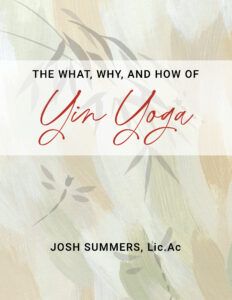“Everything in moderation, including moderation,” said Oscar Wilde.
Advocates of moderation often find their spiritual footing within the Buddha’s doctrine of the Middle Path. As its name suggests, the Middle Path adheres to an approach that avoids the two extremes of self-mortification (ie. extreme asceticism) and self-indulgence (ie. “Let us eat and drink, for tomorrow we die”); hence, the moderate’s doctrine of choice.
Undoubtedly, this was part of the Buddha’s path for happiness — practically speaking, avoiding the extremes of asceticism and self-indulgence — but there is also a philosophical aspect to the Buddha’s Middle Path which is worth exploring as it tends to be under-considered. The philosophical Middle Path offers a view of the world that lies, well, in the middle of a polarity of views that were common in ancient India.
My hope is that by engaging with these philosophical views, you will join me in an exploration of perspectives around practice which will hopefully energize, challenge and clarify just what exactly we’re doing in the heart of our practice.
On one end of the philosophical spectrum, there is the view of reality that beneath the world given to us by our senses, there is an unchanging, eternal and blissful dimension. Within this view, liberation is achieved by realizing this dimension and by escaping the insecurity and transience inherent in this world’s experience. This is a classic transcendent model of awakening. And in the philosophical debates of the Buddha’s day, this essentialist view of reality is characterized as one of ‘existence’, whereby the ‘existence’ of this transcendent dimension is seen as something that permanently exists, ever and ever, abiding independently of causes and conditions. If we squint a bit, this view might be analogous to the Judeo-Christian conception of Heaven.
On the other end of the spectrum there is a view of reality where nothing as we experience it really exists; instead, the world is driven by materially deterministic forces which lead to a kind of meaningless amorality, in a word: nihilism. Not so appealing, is it? This view is aptly referred to as the view of “non-existence.”
I’ll explore both of these positions more closely in future posts. For now, I’d like to pause and consider why I think it’s so important to consider these philosophical views at all.
The reason is this: consciously or unconsciously, the view that one holds inevitably influences how one engages with any path. A view contains a conceptual model of how things operate, a sense of where a practice leads, and an expectation around what sorts of results a practice will bear. In short, one’s view has consequences.
And yet, in our modern world of spiritual pluralism, it’s tempting to blur distinctions between traditions and propose that all paths (and their concomitant views) lead to the same destination (i.e.. “one mountain, many paths”, or “it’s all One”). For those who feel burdened by the work of evaluating incompatible doctrines, or for those who find discomfort with critical discernment, the Perennial Philosophy — the notion that all the world’s religions share a core truth — offers a kind of salve, a consolation. And yet, to quote the late Christopher Hitchens: “As for consolation, since religious people so often insist that faith answers this supposed need, I shall simply say that those who offer false consolation are false friends.”
I don’t think the Buddha offered false consolation; rather, a close reading of early-Buddhist teaching reveals a teacher who was unafraid of criticizing the views of his day, often harshly. And, as we begin to explore these various views, I’d like to give you an introductory taste of the Buddha’s sensibility.
To begin, I encourage you to read the following discourse given by the Buddha, called, “To Vacchagotta on Fire”, or in Pali, the Aggi-Vacchagotta Sutta. In this brief teaching, the Buddha is questioned on a range of prevalent views of the world, each of which he describes as a ‘thicket of views’ that fails to mitigate the suffering of the human condition.
Here is the Sutta: Aggi-Vacchagotta Sutta
Here is a brief: Wikipedia explanation of the Sutta
My suggestion is to read the Sutta first, then the Wikipedia explanation, and then re-read the Sutta again.
In future posts, I will continue to flesh out these ancient views of ‘existence’, ‘non-existence’, and the Buddha’s view from the middle — as well as the implications these views have for our practice. I hope you enjoy.
Originally published on March 25, 2016

